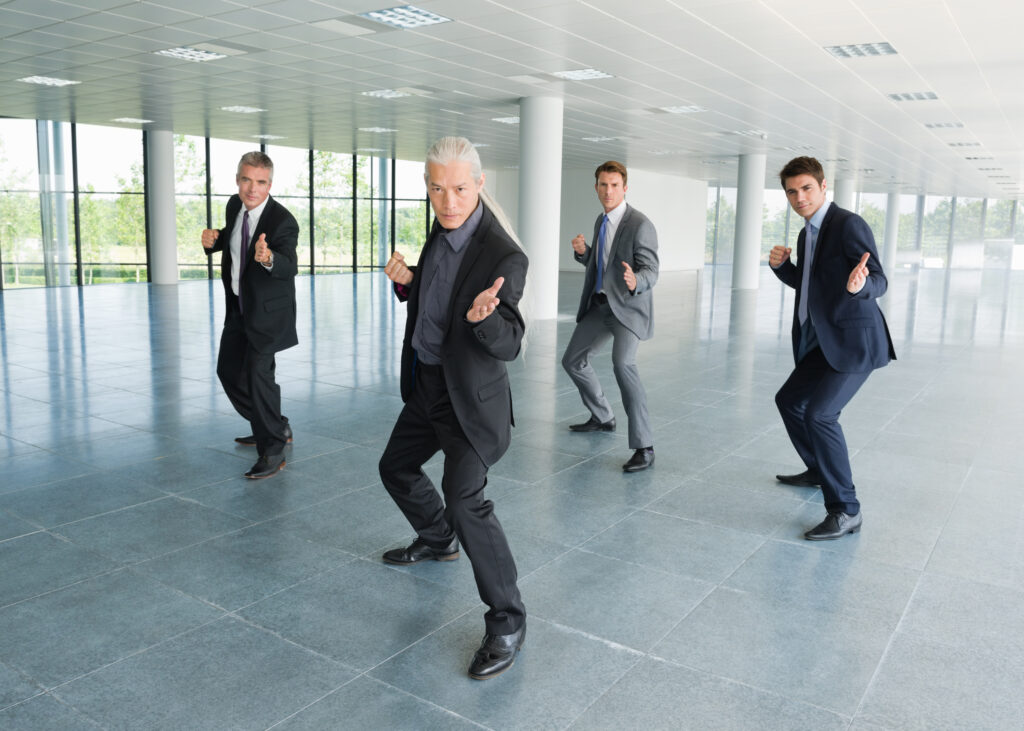Tai Chi Approach to Litigation

Several years ago I was working for a mid-size litigation firm, and a big part of my job was to coach about 10 young lawyers (with 0-3 years of experience on average) at any given time. Since they hired a few new law school grads every year, there was always a fresh supply of newbies. While the supervising lawyers did a good job training them to be effective in court using motions, pleadings and arguments, I focused on how I could improve their behavior by taming their egos, stressing the need for objectivity and open mindedness, and curbing impulsivity through mindfulness. Looking back, I’m happy to report that The Tai Chi approach to litigation has made a meaningful and lasting impact on those young lawyers.
Tai Chi and Litigation
After about 20 years of practicing law, I became interested in Yang-Style Tai Chi and began taking weekly lessons with my Friend Lou, a longtime, well known Master of Yang-style Tai Chi. Unlike the fighting application of many external martial arts (where students are trained to meet force with force), Tai Chi is an internal martial art- where your opponent’s force is instead redirected by you and used against them, while using very little of your own.
Hence the saying that with Tai Chi, the old can defeat the young and the weak can defeat the strong. When people think of Tai Chi, they envision groups of (usually elderly) people, doing slow meditative movements in large groups in a park; however, each one of these movements (when sped up) can be used in a physical conflict- and if done properly can diffuse physical confrontations while inflicting severe damage to one’s opponent.
Exercise Mindfulness in the Courtroom
One of the pillars of Tai Chi is mindfulness- which means not only paying attention to your surroundings, but being keenly aware of what’s going on- so you can immediately react to situations as they’re unfolding, get out of the way, and redirect your adversary’s energy.
After studying Tai Chi for a few weeks and learning how graceful and effective it can be, I realized that its principles could be equally applied in a different setting- the adversary system in which I worked as a trial lawyer. Too many lawyers are stressed out, up tight, and looking for their next fight or argument.
Young Lawyers Don’t Need to Appear Tough
Sometimes a young lawyer will put on a “game face” to appear tough and prove themselves to their like-minded colleagues or bosses. Just as punches and kicks could be redirected using an attacker’s own energy, Tai Chi principles could be applied to verbal confrontations and attacks from adversary lawyers- by simply responding with kindness or humor and a smile in a context where it’s totally unexpected.
Of course this requires resisting the inevitable impulse to meet forceful words with forceful words, and instead to “take the high road” and “kill them with kindness.” This requires practice, discipline and controlling one’s ego- but the results and benefits can be immediate and lasting.
To that end, I once advised a young associate who was anxious about an upcoming hearing against a rude and nasty (and highly experienced) defense attorney to offer to buy him a cup of coffee after the hearing. The next day, the associate happily reported that opposing counsel was shocked by the offer, but accepted- and from that point on they got along famously.
The Tai Chi litigation style has become a big part of my consulting and coaching work, and has left a lasting impression on many lawyers I’ve worked with.
updated 1/18/22
